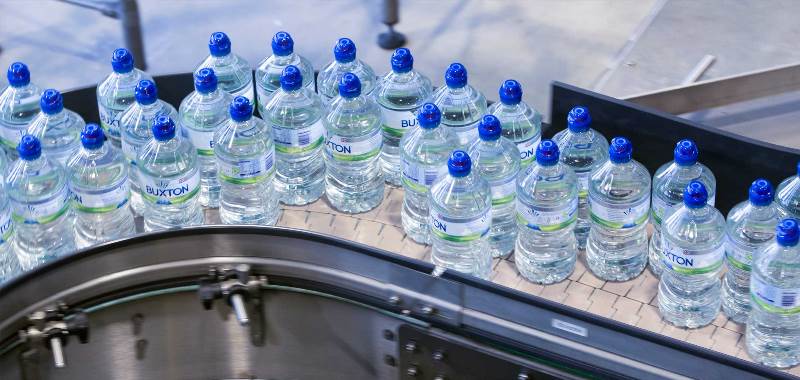
Nestle has pledged to use recycled plastic (rPET) in the bottle production for Buxton Natural Mineral Water brand.
The complete range will be recyclable and made from 100% rPET by 2021, which will contribute to a circular economy.
Last month, the company launched 100% rPET bottles in the 75cl and 1l ranges, while the rest currently contain at least 20% rPET content.
The initiative will significantly reduce the amount of virgin plastic in circulation.
Nestle Waters UK business executive officer Michel Beneventi said: “We are incredibly excited to be able to put our commitments to sustainability into practice. The high-quality recycled material retains the same all-important properties as PET, resulting in a product that is lightweight, durable, resilient and still 100% recyclable.
“We would have liked to have made all our Buxton bottles from recycled material much sooner but there are many challenges to achieving this. The material we use needs to be high-quality food grade.”

US Tariffs are shifting - will you react or anticipate?
Don’t let policy changes catch you off guard. Stay proactive with real-time data and expert analysis.
By GlobalDataCurrently, the company relies on the supply of rPET material for the Buxton bottles from outside the UK. At the moment, the UK does not have the required infrastructure to produce the material in huge quantities.
Beneventi added: “We would love to be able to produce the bottles for our British water in the UK. Therefore, we are working with industry partners, non-governmental organisations and government to improve the national recycling rate, supporting the UK-wide Deposit Return Scheme and engaging with consumers about their recycling to help make a circular economy for plastics a reality.”
Nestle has pledged to make 100% of its packaging recyclable or reusable by 2025.



